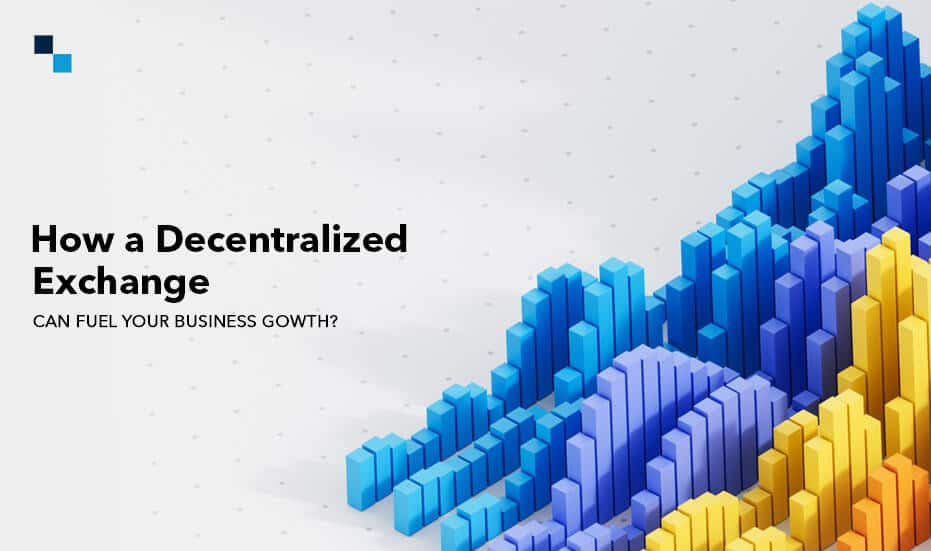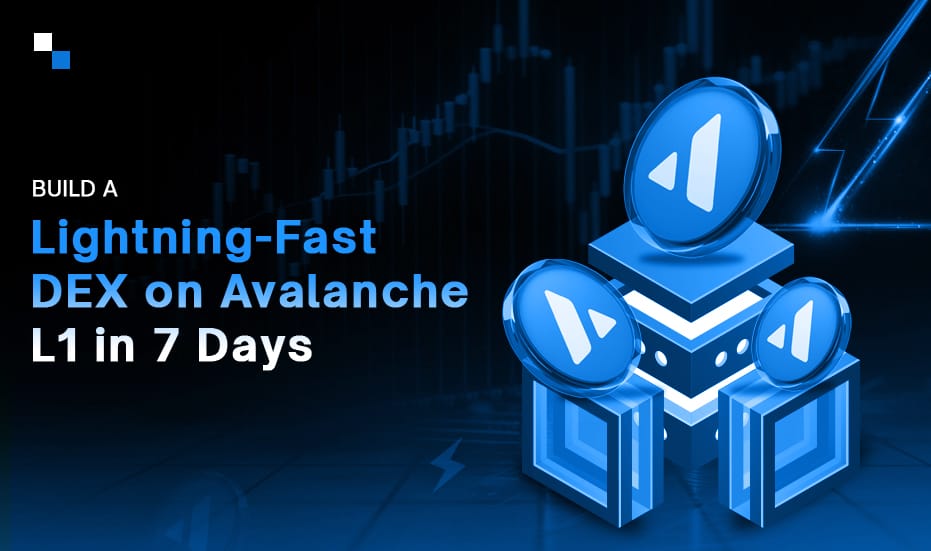
Generate Passive Income with Crypto Wallet Development in 2024
February 6, 2024
How to Develop P2E Game with Unity Engine?
February 7, 2024In the dynamic landscape of blockchain and web3, the emergence of decentralized finance (DeFi) stands as a pivotal and disruptive trend. The profound impact of DeFi exchange development has sparked widespread discussions within the business community. This transformative technology has redefined the accessibility of financial services by leveraging blockchain, presenting startups with unprecedented opportunities.
DeFi’s far-reaching influence is poised to reshape global business landscapes, creating novel avenues for financial transactions.
Why should Businesses Care about DeFi Exchange Development?
DeFi enables businesses to provide decentralized and secure access to services, which introduces a tangible means of cultivating customer trust.
A business that invests in DeFi exchange development builds credibility in the eyes of customers, demonstrating organizational adaptability to evolving trends. The intrinsic benefits of decentralized finance, including heightened accuracy and transparency in transaction recordkeeping, reduced transaction fees, and accelerated transfers, contribute significantly to customer satisfaction. Consequently, DeFi becomes a pivotal driver for securing customer loyalty.
In addition, launching a decentralized exchange enables businesses to provide significant benefits to their users, which translates to greater user engagement and higher revenue generation.
- Token Accessibility
Decentralized exchanges offer a broader range of token availability compared to centralized counterparts. Centralized exchanges must individually review and ensure compliance with local regulations before listing tokens. In contrast, decentralized exchanges can incorporate any token minted on the blockchain they operate on, making them a preferred platform for new projects seeking swift listings.
- Privacy Considerations
Decentralized exchanges prioritize user anonymity during cryptocurrency transactions. Unlike centralized exchanges that necessitate users to undergo Know Your Customer (KYC) processes, users on decentralized exchanges can maintain their privacy without the need for standard identification procedures. This feature attracts individuals who prefer not to disclose personal information.
- Enhanced Security Measures
Experienced cryptocurrency users who self-custody their funds experience reduced security risks when using decentralized exchanges. Unlike centralized exchanges, DEXs do not control user funds. Instead, users independently safeguard their funds and only engage with the exchange when necessary. In the event of a platform breach, only liquidity providers may face potential risks.
- Mitigated Counterparty Risks
Decentralized exchanges, operating without intermediaries and relying on smart contracts, eliminate counterparty risks that arise when one party fails to fulfill its transactional obligations. The decentralized nature of these exchanges ensures that contractual obligations are automatically executed through smart contracts, thereby mitigating the risk of default by the involved parties.
Businesses can partner with an experienced decentralized exchange development company to meticulously evaluate the importance of integrating DeFi into their operations, considering not only the opportunities it presents but also the inherent challenges.
Technology Powering Decentralized Exchanges
For entrepreneurs venturing into DeFi exchange development, a comprehensive understanding of the underlying technology is imperative. DeFi, an innovative approach reshaping traditional financial systems, relies on the integration of blockchain and smart contracts. The rationale behind initiating a DeFi exchange business often pivots around eliminating intermediaries and central authorities, fostering an accessible and transparent financial ecosystem.
- Blockchain Technology
Acting as a distributed and decentralized digital ledger, blockchain records transactions across a network of multiple computers or nodes. The impact of blockchain on DeFi exchanges manifests in its capacity to deliver greater security, transparency, and immutability.
Transparency within the blockchain ensures the open visibility of financial services and transactions, establishing a foundation for user trust. Decentralization, a core tenet of blockchain, mitigates risks associated with a single point of failure, reinforcing the security of DeFi exchanges. Additionally, the immutability of transactions on the blockchain safeguards the integrity of all dealings within DeFi platforms.
- Smart Contracts
Smart contracts serve as self-executing agreements that execute automatically when certain predetermined conditions are fulfilled. Smart contracts offer multiple benefits when it comes to DeFi exchange development.
The primary benefit is the automation of processes, streamlining complex transactions through the automatic execution of specified actions. The transparency and immutability inherent in smart contracts on the blockchain contribute to a reduced reliance on trust among users engaged in financial transactions. Furthermore, smart contracts present the dual advantages of lowered operational costs and significantly reduced transaction fees.
Consideration for Deciding on DeFi Exchange Development
Businesses engaged in DeFi exchange development must meticulously evaluate several factors before embarking on the development journey. Here are key considerations that demand attention.
- Market Trends
Begin by analyzing market trends and prevailing dynamics within the financial ecosystem. Evaluate the adoption rates of DeFi solutions among competitors and potential partners to gauge the relevance of launching a decentralized exchange in your industry. A comprehensive review of market trends will assist in determining the strategic timing and necessity of introducing a DeFi exchange for your business.
- Alignment with Business Model
Identify if DeFi exchange development aligns with your business model, and how the incorporation of DeFi can contribute to achieving your strategic goals and enhanced value propositions. In addition, it is crucial to assess whether the adoption of this new technology can help you gain an essential competitive edge.
- Operational Effectiveness
Analyze your existing operational processes of your business, identifying areas that can benefit from streamlining and reduction of inefficiencies. Consider potential enhancements in trading, asset management, payment processing, and other financial services to enhance user experiences. DeFi exchange development should align with the goal of operational effectiveness and efficiency within your business.
- Technical Feasibility
A critical aspect in addressing the viability of launching a DeFi exchange is assessing technical feasibility. You can partner with an experienced DEX development company to evaluate whether your business possesses the necessary infrastructure and technical capabilities for the seamless integration of a decentralized exchange. Such companies can equip you with the required technical infrastructure to harness the full potential of DeFi exchanges.
- Risk Assessment
Prioritize comprehensive risk assessment as part of your DeFi exchange development plan. Identify potential risks, including compliance and regulatory challenges, as well as security issues. The risk assessment plan should include a thorough analysis of cost benefits, considering the potential savings due to lower transaction fee and reduced operational overheads.
Why Choose Antier for DeFi Exchange Development?
We have real-world experience delivering highly secure, user-friendly, and seamlessly scalable decentralized exchanges to businesses across the globe. Our DeFi exchange development engineers take care of every aspect – right from integrating smart contracts to automated market makers and liquidity pools. Besides, we leverage our expertise and deep domain knowledge to reinforce decentralized exchanges with DeFi protocols like yield farming, DeFi lending, and more.
Our commitment to delivering enterprise-grade, end-to-end solutions has helped us position ourselves as a trusted and leading decentralized exchange development company.
Connect with our subject matter experts to discuss your business use case.



